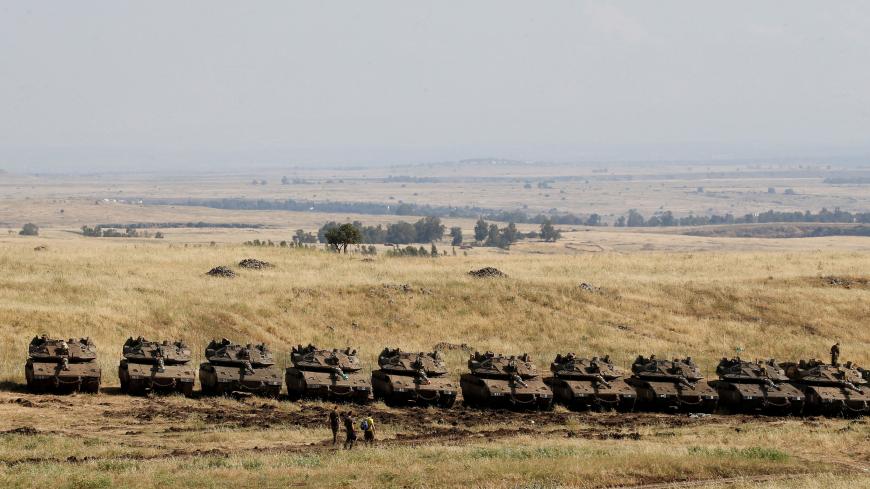Three major developments involving Israel and Syria took place June 29 and 30. The Israel Defense Forces significantly beefed up its presence in the Golan Heights, including the armored and artillery corps, in light of the advance of President Bashar al-Assad’s army in southern Syria. Israeli Chief of Staff Lt. Gen. Gadi Eizenkot landed in Washington for a series of urgent meetings regarding developments on the northern front and the campaign being waged by Israel and the United States vis-a-vis Iran. The Israel Defense Forces (IDF) also conducted a secret night operation to transfer large quantities of humanitarian assistance to Syrian refugees, including foodstuffs, medications, tents and clothing to the tens of thousands of Syrian refugees who have dug in opposite the Israeli border.
Israel is determined not to allow the refugees to enter its territory and is going out of its way to help them where they are. On July 1, Israel announced that it would not allow Assad’s army to enter the demilitarized territory on the border between the two states. The 1974 cease-fire agreement between them refers to a wide demilitarized strip of land that separates Israel and Syria and is now populated by refugees who are massing on Israel’s borders as the Syrian army rapidly advances on the territories held by the rebels in the country’s south. Israel finds itself torn between helping the rebels, with whom Israel has developed a relationship of sorts, and reluctantly reconciling itself to Assad’s return to the border. So far, Israel has decided not to decide and limits itself to humanitarian aid.



